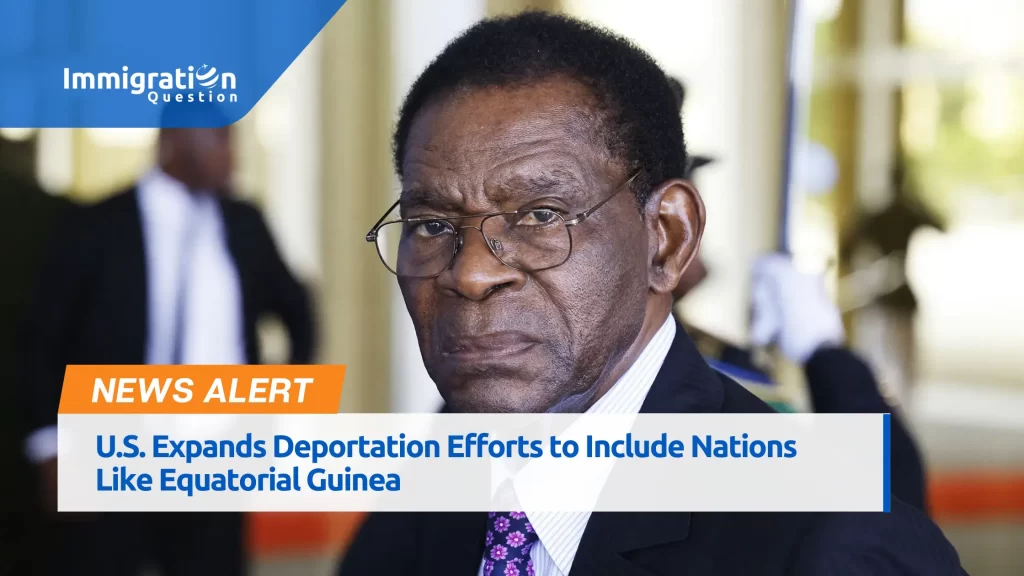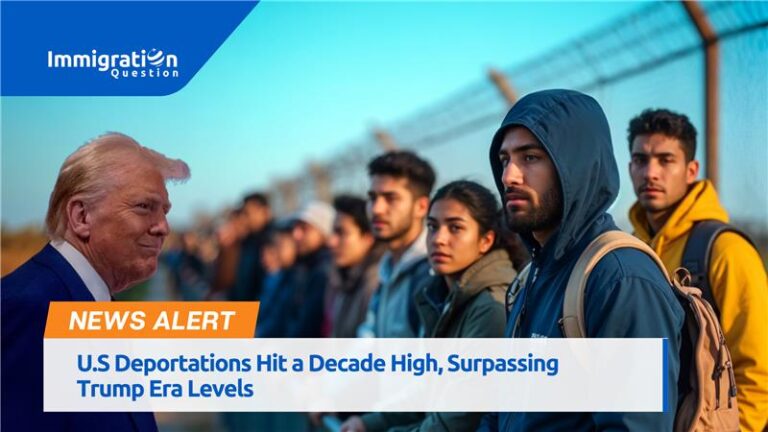The Trump administration is negotiating with nations like Angola and Equatorial Guinea to accept migrants with no national ties to them. The move is towards third-country deportations as a part of a broader strategy to deter illegal immigration, raising legitimate legal and humanitarian concerns about the treatment of deportees abroad.
A New Direction in Deportation Strategy
Internal documents indicate negotiations underway to deport migrants thousands of miles, even to countries with tenuous ties to the deportees. Such talks are also part of a larger diplomatic effort to deal with mass deportations by securing the help of as many nations as they can—even those with dubious human rights records. This fits with the administration’s increased attempts to reduce the number of illegal immigrants in the U.S. by shipping them off to other nations that are welcoming to them.
Deporting Beyond Borders
Several Latin American countries, including Costa Rica, Panama, El Salvador, Guatemala, and Mexico, have already agreed to accept third-country nationals from the U.S. This year, hundreds of African and Asian migrants were repatriated to Central America. Nearly 300 suspected gang members from Venezuela were deported to El Salvador, where they were detained.
But the administration’s recent actions go even further. It is now reaching out to African and European nations, including Benin, Rwanda, Moldova, Eswatini, Libya, Angola, and Equatorial Guinea, for potential deportation deals. While no deals have been made official, the talks represent a brazen shift in U.S. deportation policy.
The Tren de Aragua Focus
Among the proposals being considered is deporting those individuals suspected of affiliation with the Venezuelan gang Tren de Aragua. Under pending proposals, they may be deported to third countries regardless of their status as citizens. According to the plan’s sources, the purpose is to reduce criminal networks and support the administration’s stance on immigration enforcement.
In past deals, the U.S. offered source countries financial assistance to host and care for repatriated migrants, as with El Salvador’s deal. However, with future third-country deportees, there is uncertainty about how they would be treated, especially in countries that have poor human rights or well-established asylum infrastructure.
Unanswered Questions and Unconfirmed Deals
Despite the scale of such efforts, many details have been kept under wraps. The Department of State would not publicly comment on the negotiations, and some of the target countries refused to respond or stated that they had not been notified of any official talks.
Others argue that such arrangements raise legal and humanitarian concerns, particularly regarding deportees’ security and treatment, to be accorded at their destination. Recently, a court decision required deportees to be informed of the destination country and screened for potential threats before removal.
Looking Ahead
As the Trump government continues its hardline approach to immigration, the search for third-country deportation agreements is a significant watermark. It will indeed have legal and diplomatic obstacles to implementation, but the intent is clear: to deter illegal migration by making it understood that removal from the U.S. may result in removal anywhere—wherever distant or unfamiliar.
Whether or not these strategies succeed or meet resistance in courts and international forums remains to be seen. The global implications of offshoring deportation responsibilities can reshape the future of U.S. immigration policy and how the world responds to migration pressures.
To stay updated, visit our news page or ask your immigration questions on immigrationquestion.com and get answers from experienced attorneys.










